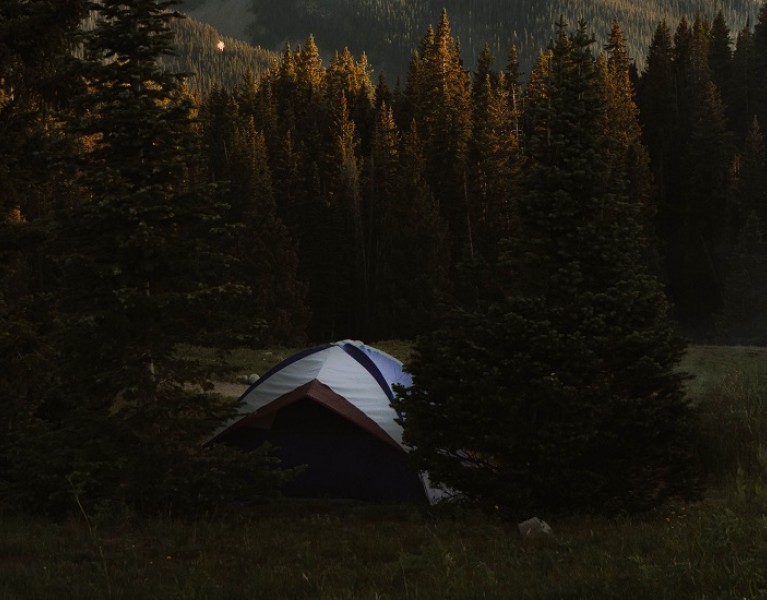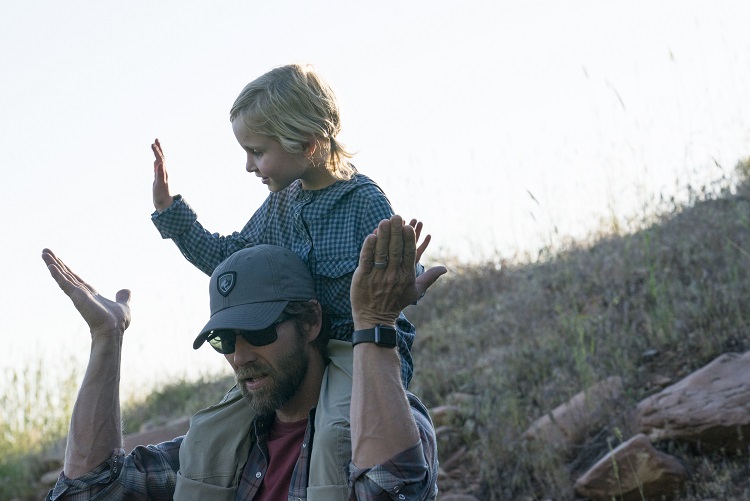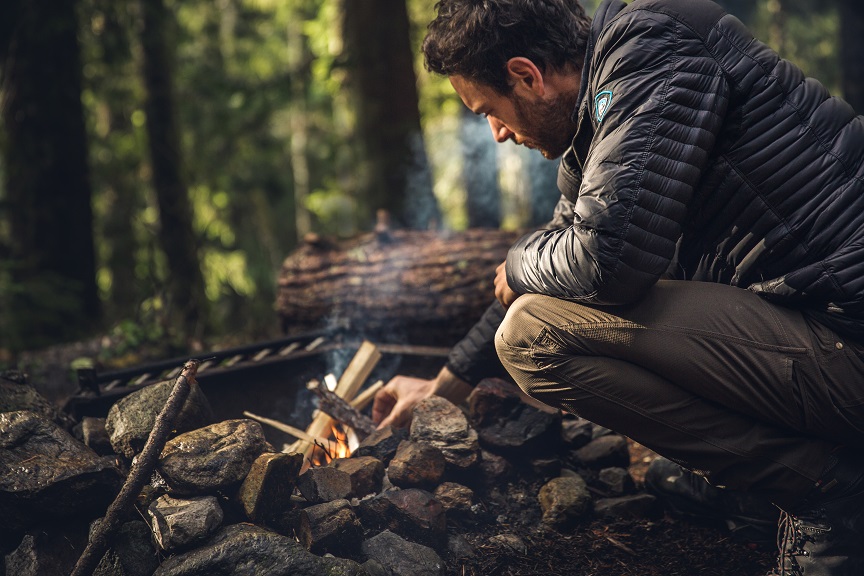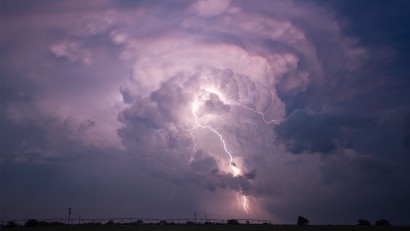
Camping Traditions: They're More Than Just Memory Makers
Table of Contents [Show]
Close your eyes and imagine your best summertime memories. Can you smell the pine smoke clinging to your clothes? Are are you picturing your family or best friends goofing off around a campfire or sharing a sunset on the top of a trail?
Camping has a way of appealing to our innate need for connection and stability. Camp traditions—no matter how subtle, obnoxious, or off-the-wall—strengthen the bonds between ourselves and the people around us.
Summer camp
For some families, it's not only a tradition to ship their kids off to summer camp, it's "the thing to do" to send them to the same camp the parents went to as kids. And then there's the "summer camp for grownups" concept, which by many accounts is less about reliving the wonder years and more about revisiting Rush Week.
No matter the age of the camper, summer camps usually divide their charges into tribal groups, identified by shirt color and possibly a hand-beaded necklace or three. Cheerful rivalry can nudge into Lord of the Flies territory during team sport events, scavenger hunts, and camp amphitheater sing/shout-alongs. But this tribal behavior has a purpose.
Most kids who show up with absolutely no family or social connections are wired to seek some sort of cohesive unit. Though pecking orders always emerge, kids can reinvent themselves and experiment within the bounds of these temporary societies. It encourages growth and challenges the way kids identify themselves, and by uniting against a worthy (and hopefully friendly) opponent, kids can learn about teamwork.
Camp songs
I was tempted to lump this one with the previous section, but then I thought of all the times I've seen a campfire circle come alive with music: acoustic guitars, harmonicas, and clear, beautiful (or not so much) a cappella voices. Even if you're not one hundred percent paying attention, music binds everyone together, even if for only a short, memorable moment.
Yes, there are gusty, cheesy camp songs. When kids are separated from their tech—and therefore, their favorite K-pop bands—camp songs give them an inclusive, shared experience that helps cement that feeling of belonging. While a 12-year-old might not be caught dead singing "Boom Chicka Boom" or "Baby Shark" anywhere else, they'll gleefully belt out their lines if they can bring honor to Team Orange (or, for that matter, Team Grandma Shark).

Tribal customs
A pack of sunburned, bug-bitten kids can get together and form brand new allegiances at summer camp, but family groups—biological or chosen—have their own esoteric traditions developed over years, if not generations. It could be Grandpa blaming his farts on popping firewood in the evening or barking spiders during the day. Or the annual attempt to swim across the lake, and getting towed to shore from the midway point by Great Aunt Barb in her kayak.
I'll always appreciate how my mom, who never let us forget that she'd rather be on a cruise, would win the Chubby Bunny Challenge every year like a true sport.
I've gone camping and rafting with a group of friends every Labor Day for nearly two decades. Aside from our everyday in-jokes, there are some quirks that, by some unspoken agreement, only express themselves on these occasions. For example, there's one woman in our group who insists on making her Dutch oven French toast casserole, complete with bacon crumbles and ricotta cheese, though for the other 51 weeks of the year she's a strict vegan.
A couple of old seminary college roommates would instigate a "Yo Momma" snark-off lasting the entire trip. Given my own mom's reputation for stuffing marshmallows in her face, I stayed on the sidelines; no point throwing stones at glass houses. When our crew goes through the Troublemaker rapid on the South Fork American River, it's essential that each paddler wear a bailing scoop on their head.
We often forget that newcomers to our group might feel a little left out, but it's not long before they're bonding with the rest of us by playing along with and even enhancing our ridiculous behavior.
Perfecting, eating, and wearing s'mores
S'mores are made of three ingredients: Chocolate, marshmallows, and graham crackers. Yet there are a million ways to make a s'more, and for some, there are no compromises. I know that in our family, we stick with the brand names—to bring a non-Hershey chocolate bar into camp is grounds for an anthill burial. Our transition from plain to cinnamon Honey Maid graham crackers nearly killed my little brother's nostalgic sensibilities; it was a painful process, but even he agrees it was worth the struggle.
Still, for us, this fireside staple represents sibling rivalry. Whoever could present the best s'more—from the golden-toasted marshmallow to the perfectly-melted chocolate—to the grownups in our group claimed bragging rights. But it wasn't about doing nice things for the adults; my brother, cousins, and I really only cared about impressing one another. Our parents would give us gentle nods of thanks before turning their attention back to whatever stuff adults talk about, and we'd move on to burning our own marshmallows to molten globs of crusty goo, or poking one another in the eye with the pine branches we'd whittled into roasting spears.
It wasn't camping unless you were covered by mosquito bites and a tacky, grimy coating of Stay Puft gore. Thankfully, none of our trips ended with Medivac helicopter rides or conflicts with angry ants.

Earning a trail name
Most long-distance thru-hikers have trail names, quite often a descriptive and on-the-nose term affectionately assigned by a complete stranger. Many times, the name is inspired by a mishap, like when one guy blew out the seam of his yellow shorts (Banana Split) or that time a woman was granted the name "Hantavirus" after she complained about mouse droppings in her tent.
As unpleasant as these names may be, they're a badge of honor. "It's like you've been acknowledged... your presence on the trail is validated," said my friend Christmas—who happens to be Jewish, but wore red and green on her first day on the PCT.
"We know we're different. We know we're weird. That's why we take these odd names, use them, and keep them. We're different now, forever, and we're all in this together." — Evans Prater, "The Psychology of a Trail Name", The Trek
Years after completing a thru-hike, you might bump into a vaguely familiar person with whom you shared a meal or commiserated in the rain. If you address that person by their trail name ("Butternut? Is that you?") they are no longer a stranger. You're compañeros. Old high school buddies. Two expats with a shared culture.
The camping tradition paradox
While trail names, camp alliances, and obnoxiously esoteric rituals reinforce a sense of belonging, they also help us separate ourselves from our "real world" identities and obligations for a while. But what better way to signify the boundary between work and play, or re-establish bonds with people we might take for granted the rest of the year?
When we're out of our regular routine and environment, part of us wants to remain grounded in the security of community. Traditions help us build and maintain those connections, even if we're hiking solo or quietly hanging out just beyond the campfire's glow. We might not even realize we have camping traditions until we spend time with other tribes, or reconnect with our own after years have passed.


